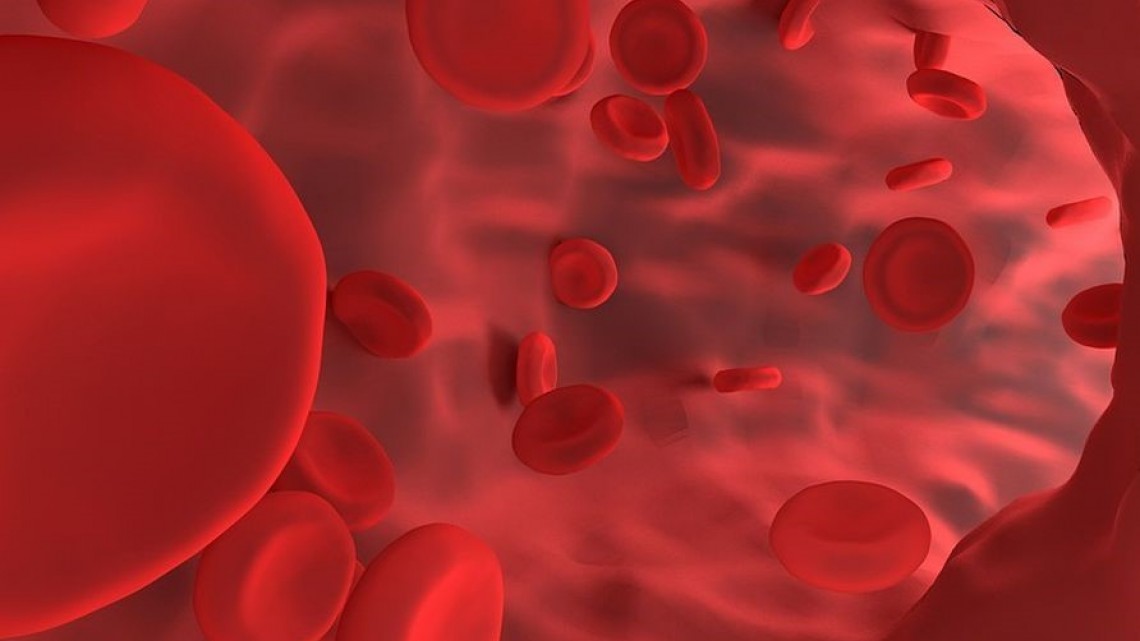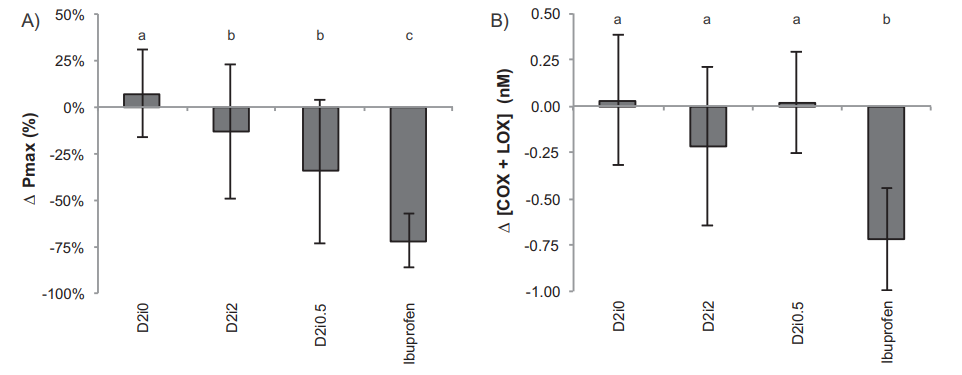Η ΕΛΑΙΟΚΑΝΘΑΛΗ ΠΡΟΚΑΛΕΙ ΟΞΕΙΑ ΑΝΤΙΑΙΜΟΠΕΤΑΛΙΑΚΑ ΑΠΟΤΕΛΕΣΜΑΤΑ ΣΕ ΥΓΙΕΙΣ ΑΝΔΡΕΣ

Το πλούσιο σε ελαιοκανθάλη εξαιρετικό παρθένο ελαιόλαδο προκαλεί οξεία αντιαιμοπεταλιακά αποτελέσματα σε υγιείς άνδρες σε μια τυχαιοποιημένη κλινική δοκιμή.
Σε αυτή τη δοκιμή, ο Agrawal και οι συνεργάτες του μελέτησαν την επίδραση που έχει η οξεία πρόσληψη υψηλά φαινολικού ελαιολάδου στη λειτουργία των αιμοπεταλίων. Οι ερευνητές μελέτησαν εάν το διαφορετικό φαινολικό προφίλ του εξαιρετικού παρθένου ελαιολάδου επηρεάζει τις καρδιοπροστατευτικές του ιδιότητες. Οι συμμετέχοντες (n = 9) κατανάλωναν 40 mL ελαιολάδου την εβδομάδα. Τα ελαιόλαδα ταξινομήθηκαν ως προς το συνολικό περιεχόμενο φαινολών και ήταν είτε φαινολικά ελαιόλαδα με ελαιασίνη/ελαιοκανθάλη 1:2 (D2i0,5), είτε
ελαιασίνη/ελαιοκανθάλη 2:1 (D2i2), είτε με χαμηλό φαινολικό περιεχόμενο (D2i0).
Οι ίδιοι ασθενείς σε διαφορετική φάση της μελέτης, έλαβαν μια δόση ιβουπροφαίνης, ως δοκιμή control. Το αίμα συλλέχθηκε πριν και 2 ώρες μετά τη λήψη ελαιολάδου. Τα D2i0.5 και D2i2 μείωσαν κατά 1 mg/mL την μέγιστη συσσώρευση αιμοπεταλίων (Pmax), με τα αποτελέσματα να συσχετίζονται καλύτερα με την πρόσληψη του ελαιολάδου με μεγαλύτερη συγκέντρωση ελαιοκανθάλης (R = 0,56, P = 0,002. Πέντε συμμετέχοντες εμφάνισαν >25% μείωση της DPmax με την πρόσληψη D2i0,5 και D2i2 και τα μεταβολικά προφίλ του πλάσματος διέκριναν τα άτομα με βάση την ανταπόκριση στο ελαιόλαδο.
Η απόκριση των αιμοπεταλίων στην οξεία πρόσληψη υψηλά φαινολικού ελαιολάδου σχετίζονται και με το φαινολικό προφίλ του ελαιολάδου.

Fig. Effects of tested EVOOs on (A) maximum platelet aggregation and (B) oxylipins associated with platelet function in healthy male subjects. D2i2, D2i0.5 and Ibuprofen all decreased maximum platelet aggregation compared to D2i0, and Ibuprofen decreased oxylipin concentrations compared to all oil.
